Speaking to reporters of Hanoi Moi Newspaper, Associate Professor Dr. Pham Minh Anh, Principal of Le Hong Phong Cadre Training School, affirmed: “Group interests” in policy making and implementation make some groups of people benefit but people and businesses are troubled. The viewpoint of eliminating “group interests” stated in Resolution No. 68-NQ/TU will create favorable conditions for business development.
- What is the significance of Resolution No. 68-NQ/TU in the current context, sir?
Resolution No. 68-NQ/TU was issued in the context that some private economic development goals have not been achieved as expected. After nearly 40 years of renovation, the private economic sector has achieved great results, however, some goals have not been achieved as expected, such as striving to increase the contribution of the private economic sector to GDP to about 50% by 2020, and about 55% by 2025.
There are many reasons, including institutional causes that are "bottlenecks of bottlenecks". Therefore, it is necessary to "remove institutional bottlenecks" so as not to miss development opportunities for the country and the private economic sector.

In addition, the new US tariff policy requires us to continue to enhance the endogenous capacity of the economy, of domestic enterprises, especially the private economic sector, to achieve the development goals of the new era.
- The content of Resolution No. 68-NQ/TU mentions removing barriers and removing bottlenecks for the private economic sector. Can you analyze these groups of barriers in more detail?
In my opinion, there are 3 major groups of “barriers”.
Firstly, there are barriers in thinking and awareness about the position and role of the private economy. In reality, there are still thoughts of underestimating and even prejudices about the private economy, thinking that the private economy conducts business to bring profits to individuals and does not contribute much to the overall development of society.
This thinking needs to be eliminated immediately, because reality proves that the private economic sector has made a huge contribution to the country's development with about 50% of GDP, more than 30% of total state budget revenue and employing about 82% of the total workforce.
Second, it is to remove barriers in accessing land, capital, high-quality human resources, and preferential policies for the private economy. According to the results of the PCI Provincial Competitiveness Index assessment, nearly 73% of businesses said they had to delay or cancel their business plans in 2023 due to difficulties in carrying out administrative procedures related to land.
The third barrier that needs to be removed is related to administrative procedures and sub-licenses. Although we have reviewed and removed many times the “sub-licenses” that hinder market entry and business operations, this “barrier” still exists, causing some businesses to delay or even cancel their business plans, wasting time, resources and business opportunities.
- Resolution No. 68-NQ/TU has demonstrated a breakthrough in thinking, mechanisms, and policies, while breaking down "barriers" and removing "bottlenecks" to promote private economic development. Do you think so?
That's right. First of all, we must mention the breakthrough in thinking about the role and position of the private economic sector. If previously, Resolution No. 10-NQ/TU dated June 3, 2017 of the 5th Conference of the 12th Party Central Committee on developing the private economy into an important driving force of the socialist-oriented market economy, identified "the private economy as an important driving force for economic development", then Resolution No. 68-NQ/TU took an important step forward when it affirmed that "the private economy is the most important driving force of the national economy", and entrepreneurs are "soldiers on the economic front".
Second, is the breakthrough in reforming administrative procedures and business conditions. Instead of tightening, we loosen the "input" such as cutting at least 30% of administrative procedure processing time, at least 30% of business conditions in 2025 and continue to cut sharply in the following years.

Third is the breakthrough in access to land and capital. To break down the “barrier” to access to land, Resolution No. 68-NQ/TU stipulates that each locality must set aside a corresponding land fund in industrial parks and industrial clusters, with an area of about 20 hectares, or at least 5% of the land fund that has been invested in infrastructure, to be reserved for high-tech enterprises, small and medium enterprises, and innovative startups.
Fourth, as a breakthrough in tax and fee policies, Resolution No. 68-NQ/TU affirmed: "Eliminate lump-sum tax for business households by 2026 at the latest, abolish business license fees; exempt corporate income tax for small and medium-sized enterprises in the first 3 years of establishment".
Finally, there is a breakthrough in inspection, examination and handling of violations. Resolution No. 68-NQ/TU affirmed: For cases related to civil, administrative and economic matters, priority will be given to administrative handling measures. In cases where criminal proceedings are required, priority will be given to measures to remedy economic consequences first and this will be considered an important basis for considering further handling measures.
- The Politburo is determined to eliminate group interests in policy making and implementation. How does this affect the investment and business environment of the private economic sector, sir?
In my opinion, “group interests” in policy making and implementation will cause great damage to the common interests of the country. Some groups of people benefit, but the people and businesses are inconvenienced and spend money, hindering their market entry and business investment expansion.

Therefore, eliminating “group interests” in policy development and implementation plays a particularly important role in creating an investment and business environment for the private economic sector. At that time, all mechanisms and policies are developed and implemented based on the spirit of: Taking people and businesses as the center; all policies designed must revolve around serving and creating favorable conditions for people and businesses to develop.
- As the Principal of Le Hong Phong Cadre Training School , what requirements do you see in Resolution No. 68-NQ/TU in the training and fostering of cadres ?
President Ho Chi Minh affirmed that "Cadres are the root of all work", "Training cadres is the root work of the Party".
To contribute to the effective implementation of Resolution No. 68-NQ/TU, it is necessary to change the mindset of officials, especially state economic management officials, from "passively serving the people" to "proactively serving the people" and eliminate the mindset of "if you can't manage, then ban" - a safe mindset but hinders development.
Second, if the tariff war is applied, it will have a great impact on Vietnamese enterprises, including the private economic sector. This reality requires strong innovation in training and development content so that each economic manager can be ready to adapt and have effective measures to respond to changes.
Finally, it is necessary to innovate the content and training programs, and update knowledge in a way that closely follows the needs so that after training and development, cadres can perform well the assigned tasks and also serve as a basis for comparison with the "output" after training and development.
- Thank you very much for the interview!
Source: https://hanoimoi.vn/xoa-bo-loi-ich-nhom-trong-xay-dung-chinh-sach-de-kinh-te-tu-nhan-phat-trien-702061.html


![[Photo] Prime Minister Pham Minh Chinh receives the President of Asia-Pacific region of PowerChina Group](https://vphoto.vietnam.vn/thumb/1200x675/vietnam/resource/IMAGE/2025/5/21/0f4f3c2f997b4fdaa44b60aaac103d91)


![[Photo] Prime Minister Pham Minh Chinh receives Rabbi Yoav Ben Tzur, Israeli Minister of Labor](https://vphoto.vietnam.vn/thumb/1200x675/vietnam/resource/IMAGE/2025/5/21/511bf6664512413ca5a275cbf3fb2f65)
![[Photo] Coming to Son La, let's "show off" with the Wallflowers](https://vphoto.vietnam.vn/thumb/1200x675/vietnam/resource/IMAGE/2025/5/21/627a654c41fc4e1a95f3e1c353d0426d)
![[Photo] Scientific workshop "Building a socialist model associated with socialist people in Hai Phong city in the period of 2025-2030 and the following years"](https://vphoto.vietnam.vn/thumb/1200x675/vietnam/resource/IMAGE/2025/5/21/5098e06c813243b1bf5670f9dc20ad0a)






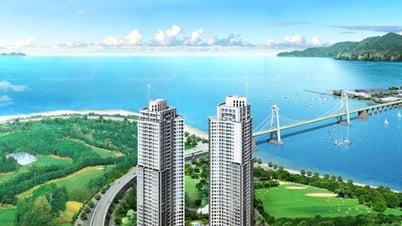


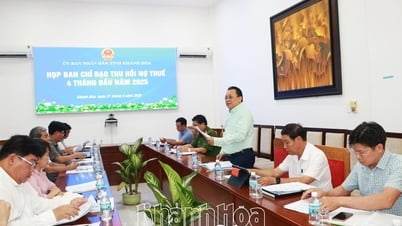






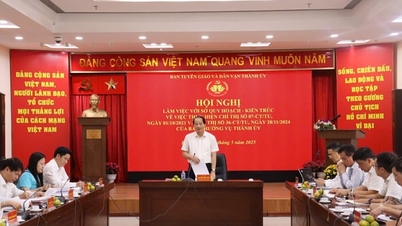
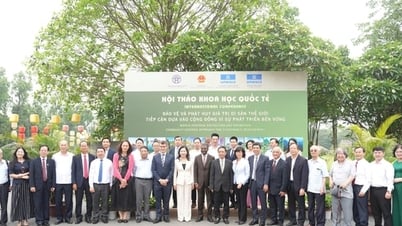
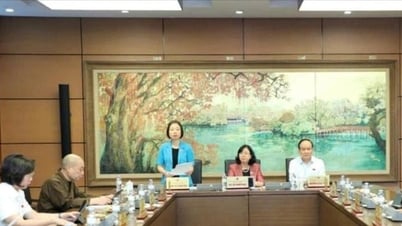










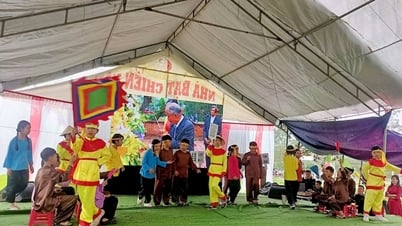
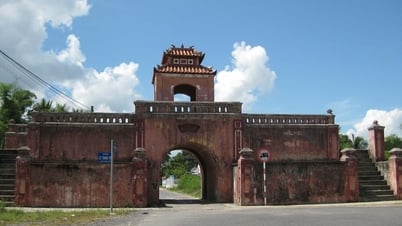










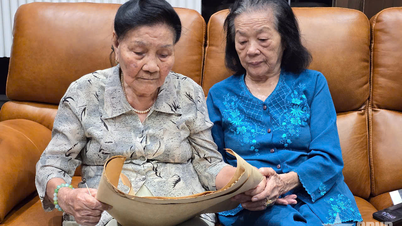









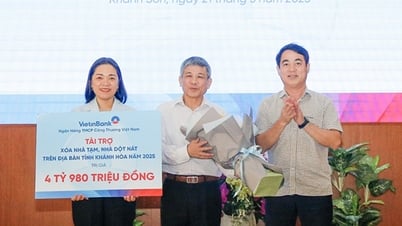


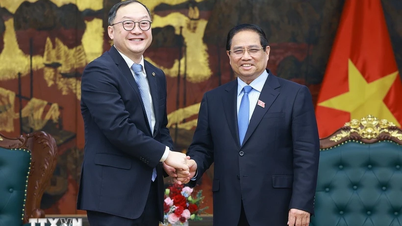





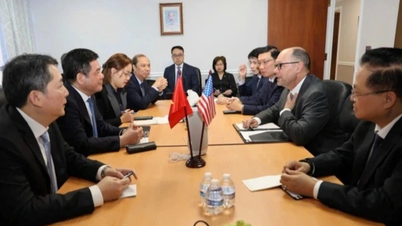






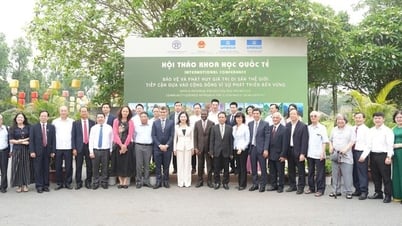












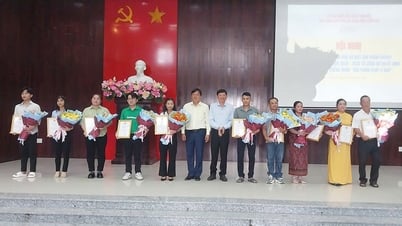



Comment (0)